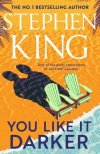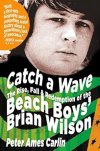stoneblue
Well-Known Member
You Like It Darker - Stephen King 9/10

This is a collection of 12 short stories. Stephen King has been described as a great storyteller and on the basis of the stories in this book, it’s hard to disagree. This is a tremendous book. There isn’t a dud in the 12 stories and for me there are a few standouts namely, “Danny Coughlin’s Bad Dream”, “Rattlesnakes” and “The Answer Man”.
For those familiar with King’s work, “Rattlesnakes” is a sequel to his novel “Cujo”. An interesting note from the Afterword is that he started “The Answer Man” story when he was 30…and finished it at the age of 75.
I think King is often categorised as a horror writer but I feel that this is too simplistic. Yes there are elements of horror, but also science fiction, the supernatural and generally unexplained phenomena.
If you only read one book this year, make it this one!

This is a collection of 12 short stories. Stephen King has been described as a great storyteller and on the basis of the stories in this book, it’s hard to disagree. This is a tremendous book. There isn’t a dud in the 12 stories and for me there are a few standouts namely, “Danny Coughlin’s Bad Dream”, “Rattlesnakes” and “The Answer Man”.
For those familiar with King’s work, “Rattlesnakes” is a sequel to his novel “Cujo”. An interesting note from the Afterword is that he started “The Answer Man” story when he was 30…and finished it at the age of 75.
I think King is often categorised as a horror writer but I feel that this is too simplistic. Yes there are elements of horror, but also science fiction, the supernatural and generally unexplained phenomena.
If you only read one book this year, make it this one!




